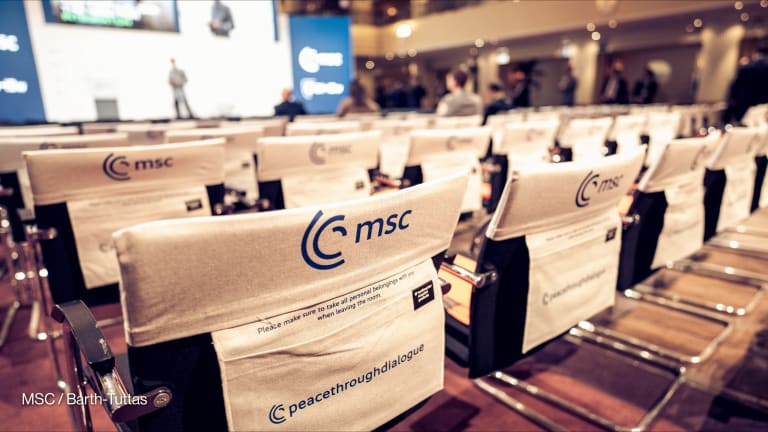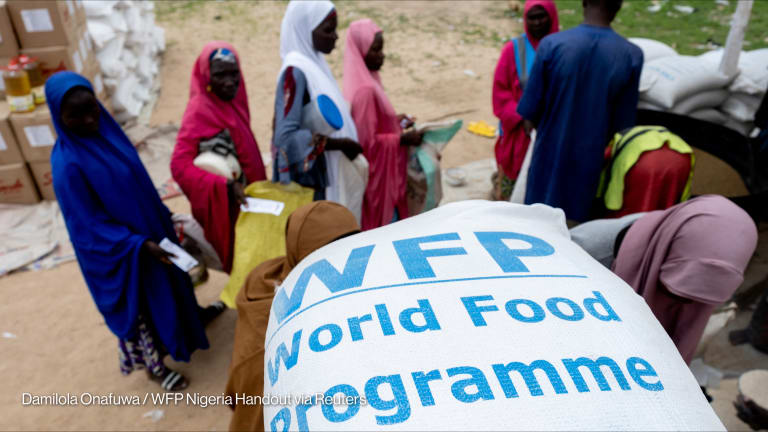
Foreign, agriculture, and development ministers from the G-7 group of major industrial nations are set to gather in Berlin on Friday for a ministerial conference, under the theme “Uniting for Global Food Security,” to tackle the food and fertilizer crisis caused by Russia's war in Ukraine.
Ministers will discuss how to get Ukrainian grain, which is currently trapped in silos, out of the country, according to Ramin Toloui, the U.S. assistant secretary of state for economic and business affairs. Speaking to reporters, he said the U.S. supports efforts by the United Nations to negotiate the opening of Ukrainian ports to allow for grain exports, adding that it is coordinating with the international body and Ukrainian government.
“We’ll also be discussing other steps to get grain that’s elsewhere in the world to vulnerable populations through our joint humanitarian assistance, how to increase supplies of fertilizer and increase the efficiency with which they are deployed, to make investments in agricultural resilience and capacity to address … how climate is affecting global food security,” Toloui said.
“The purpose of the Berlin meetings is really this broad-based agenda and bringing together not only countries that are providing money, donating money, growing food, but also those countries that are in need, to give them the opportunity to articulate those needs and to be part of designing the solutions to this incredibly important problem.”
The conference will include U.N. leadership and the U.N. secretary-general’s so-called champions group, which was established to promote political leadership in solving the global food, energy, and financial crisis.
US, development banks make multibillion-dollar push on food security
A new U.S. plan with global financial institutions aims to shore up food security amid rising prices, which have been made worse by the Russian invasion of Ukraine.
The Berlin conference, taking place two days before G-7 leaders gather in Germany for their annual summit, is meant to continue conversations begun when the U.S. hosted a global food security ministerial meeting at U.N. headquarters in New York last month. It will focus on mobilizing donor and recipient countries and multilateral organizations to help mitigate food insecurity, Toloui said.
“We’ll be looking and encouraging additional financial contributions, whether they materialize at that meeting or in the weeks following, to meet the needs of humanitarian organizations” — such as the World Food Programme — “and to also mobilize the resources of bilateral donors and international financial institutions and their development assistance programs,” Toloui said.
“And then we’ll also be looking to discuss mechanisms to ensure a follow-through on those commitments,” he added.
U.S. global food security envoy Cary Fowler told reporters that the war in Ukraine is compounding existing conflicts and an agricultural system already stressed by climate change and COVID-19.
“We have to realize that this crisis that we’re experiencing now is not one that is going to go away in the next few weeks, months. This is probably a three-year crisis to work through all of these very serious problems, all of which the United States is addressing,” Fowler said.
“But we have to look at both the very immediate, short-term humanitarian issues, as well as longer-term issues, and begin to think about this as an acute crisis that will last for a couple of years, unfortunately, because of these very serious causal factors that we’ve been dealing with.”









